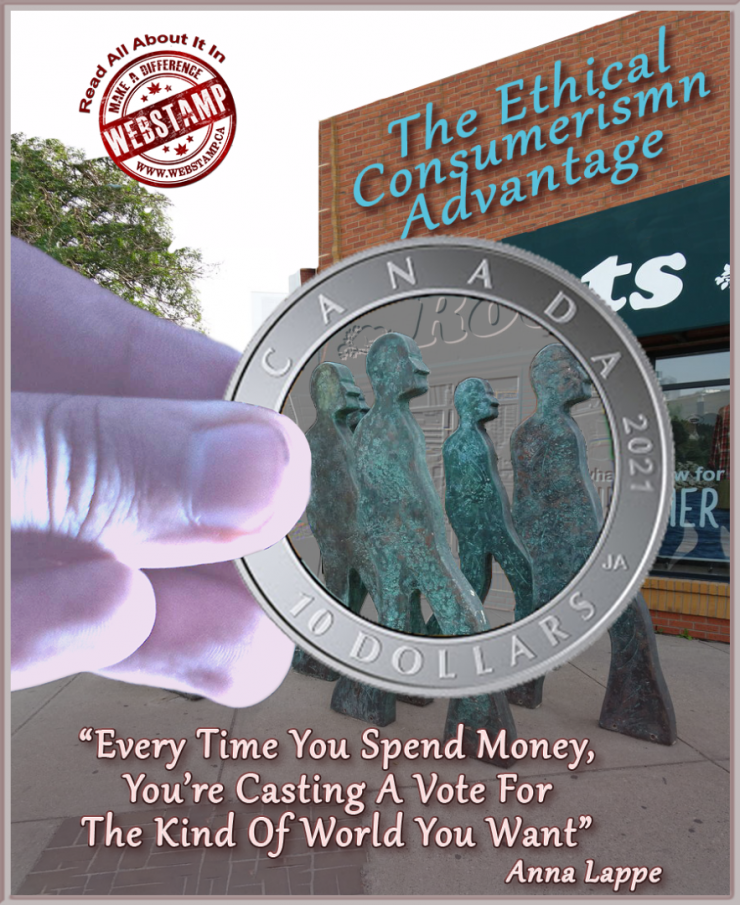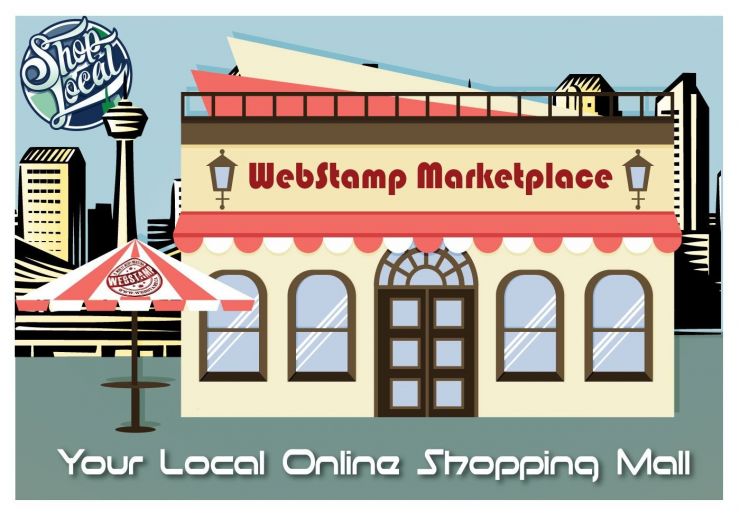WebStamp February 17, 2021
The Ethical Consumerism Lifestyle Advantage
Imagine living in a world where everyone bought only what they needed to live a fulfilling, comfortable, and sustainable lifestyle. Everything available would be ethically produced and distributed, eco-friendly, and beneficial to society. Consumers would dictate a business’ practice to conform to providing human rights, fair trade, community development, and environmental protection. Today, however, we have only begun with developing such an ethical consumer society.
Public pressure over the last few decades has developed a conscientious effort by numerous corporations promoting their brands to be more socially and ethically aware. Even though progress has been made there are many companies still producing irresponsibly and convincing people to buy wastefully unnecessary products without enough concern given to the human and environmental issues. The majority of the public is unaware that large corporations are using sweatshop labour to produce goods and not paying local producers a fair price. These companies source their products unethically and avoid paying taxes and expenses by having the consumers cover the costs to maintain their wealth and status.
Several organizations, such as the Ethical Consumer Research Association (ECRA) and B Lab, are providing information to live ethically. They are shifting the way business is held accountable to help solve the world’s biggest environmental and social challenges by rating companies on their positive and negative impact on the environment, sustainability, politics, equality, and fairness. People tend to be more supportive of brands that do good and avoid harming people, animals or the environment during the production and distribution of goods and services.
Businesses have slowly begun to adapt to the consumer's demands to providing ethically produced and distributed products and services. The newest largest group of emerging consumers are Millennials who have higher standards with ethics and morals. 75% of Millennials would not buy brands that use unethical labour practices. Consumers have the power to influence how their favourite brands produce the goods they love, both individually and collectively.
The current economic model hinders the development of an ethical economy. Ethically produced products currently tend to be more expensive, even though production costs are usually comparable. Currently only the more affluent can afford to shop ethically while those in poorer neighbourhoods are more concerned with making ends meet and getting a good return for their money. To encourage ethical consumerism the economic system needs to reward those that participate in purchasing ethically produced products.
Currently, the world is in an ethical environmental movement to eliminate using fossil fuels. To encourage the change many governments are offering incentives and tax rebates to purchase electric vehicles. This method could be adapted to the purchase of all ethically produced products allowing the impoverished population to join the Ethical Movement and help build a better future.
One can easily become part of the Ethical Consumerism Movement by supporting socially conscious companies. Instead of buying those unneeded luxuries from offending companies, donate the money for the cost of that purchase to an organization promoting an ethical cause you believe in. By buying less you are also being ethical towards supporting a stop to the capitalistic economy convincing the consumer to constantly buy the new model and wastefully disposing of the old, even when the old version is still useful.
Join the Ethical Consumerism M.A.D. Movement and Make A Difference in improving the economy for the better. Begin with the 5Rs for sustainable Living, by Refusing to buy whimsical items you don’t need, Reducing what or the amount you buy, Reusing items -even if you have to give them away, Repurposing by making something new and unique, all before you Recycle. The next step to becoming an ethical consumer would be to boycott the bad guys and shop only from ethical producing companies. Support the local economy by buying locally and using only ethical money supporting banks and institutions that do not have investments in unethical companies and practices.
Articles in this Issue
WebStamp February 17, 2021
References:
The Future of Consumerism: A World Where Products, People & Nature Are In Harmony -The Good Trade Newsletter
Ethical Consumerism -Wikipedia
Ethical Consumerism -Guardian Syndication
8 Characteristics Of Millennials That Support Sustainable Development Goals (SDGs) - Marguerita Cheng, Forbes








